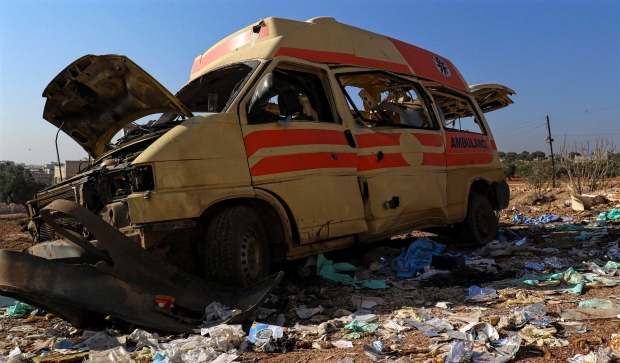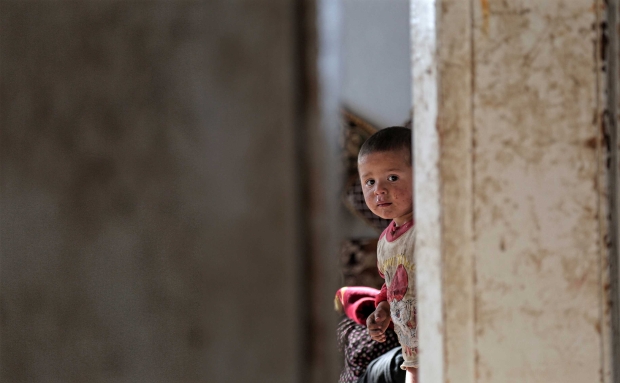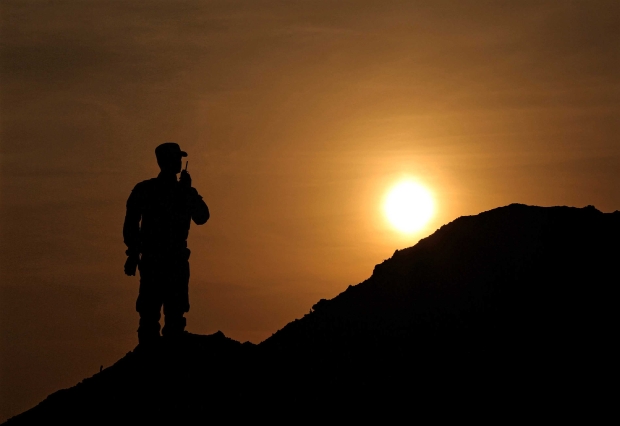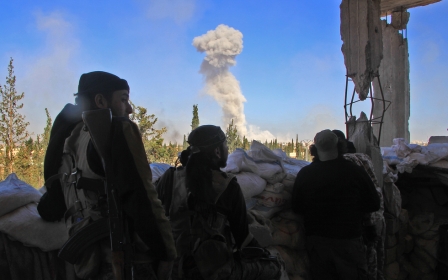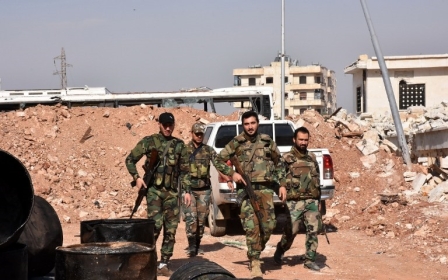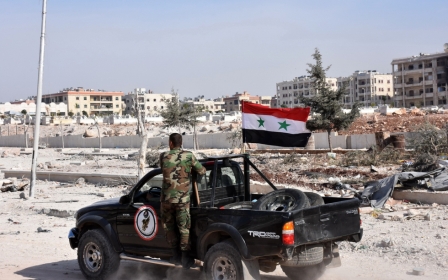Battle of Aleppo: Syrian government bombs rebels, food aid runs out
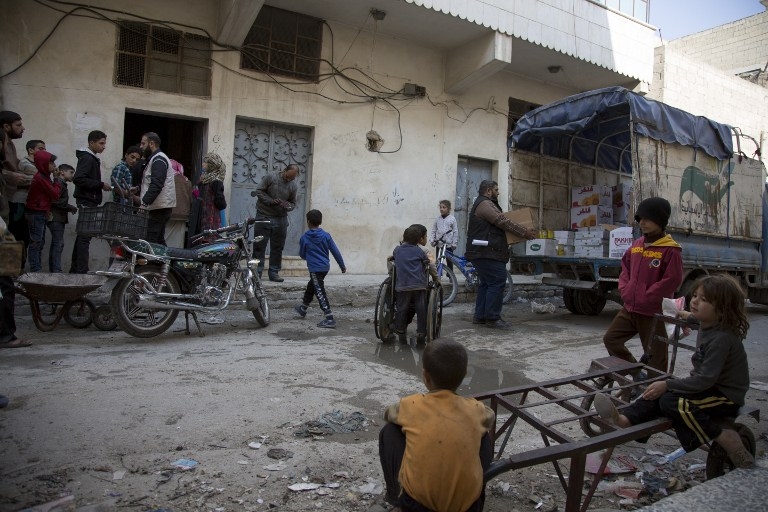
Syrian government and Russian warplanes pounded rebel-held parts of northern Syria on Wednesday, including battered second city Aleppo, where food aid rations were all but exhausted after months of government siege.
The renewed bombardment has killed at least 20 people, including nine children, in Aleppo alone in the last 24 hours, sparking anger from the United States and United Nations.
According to Al Jazeera, the air strikes targeted the neighbourhoods of al-Salhin, al-Sahkoor, al-Firdous and al-Muwaslat in Aleppo city.
The news comes after three hospitals in rebel-held areas of northern Syria were hit by air raids since Monday, leaving medical staff and patients wounded.
An AFP correspondent in the east reported heavy bombardment throughout the night and into the morning.
The Syrian Observatory for Human Rights, a Britain-based monitor, said at least 12 civilians, among them four children, had been killed in government air strikes and artillery fire in eastern Aleppo on Wednesday.
That followed the deaths of at least eight civilians in the opposition-held side of the city on Tuesday, the monitor said.
The Observatory also reported ongoing strikes in Idlib province, in northwestern Syria, which is mostly controlled by a coalition of rebel groups including Al-Qaeda's former affiliate Fateh al-Sham Front.
Food running out
Meanwhile, the UN has issued a new report saying food production across Syria is at record lows.
No aid has entered the east of the city since it was surrounded by government troops in mid-July, and the UN warned on Thursday that it was distributing its last remaining food rations in the rebel districts.
Once Syria's economic powerhouse, Aleppo has been ravaged by the war that has killed more than 300,000 people across the country since it started in March 2011 with anti-government protests.
Moscow announced on 18 October it was halting its air strikes in Aleppo ahead of a short-lived truce, and Syrian strikes on the east of the city have also subsided since then, with bombardment mostly confined to areas where clashes were taking place on the edge of the city.
The respite came after international criticism of a ferocious assault launched by Syrian and Russian forces on 22 September in a bid to recapture east Aleppo.
The bombing campaign killed hundreds of people, including civilians, and destroyed infrastructure.
Moscow has organised several brief truces intended to encourage residents and surrendering rebels to leave east Aleppo, but few have done so.
IS tighten hold on Raqqa
As Aleppo continues to be bombarded by Syrian government and Russian air raids, residents in Raqqa say Islamic State militants are trying to tighten their grip on power as Kurdish-led forces move closer to the city.
IS militants have reportedly closed down internet cafes, issued travel bans and set up new checkpoints, as US-backed forces try to make some advances onto IS’s Syria bastion.
A Kurdish-Arab alliance called the Syrian Democratic Forces (SDF) began an operation to recapture the northern city on 5 November.
The flow of information into and out of Raqqa had already been restricted since January 2014, when IS seized the city from rebels who had captured it from regime forces in March 2013.
Since the militant group took over the provincial capital, only a handful of outsiders have been able to maintain contact with Raqqa residents.
They include Britain-based monitor the Syrian Observatory for Human Rights and activist group Raqqa is Being Slaughtered Silently (RBSS).
RBSS formed secretly in April 2014 to show the world what was happening inside the city, and has documented life there despite a terrifying backlash from IS, which has murdered its activists in Raqqa and even in Turkey.
Through RBSS, AFP made contact with several people still inside Raqqa, who spoke under pseudonyms and described an atmosphere of growing paranoia among the city's militant rulers.
Musa, 31, said IS was carefully controlling access to news on the US-backed campaign to oust the group from Raqqa.
"Because of the heavy restrictions imposed by Daesh on the internet and satellite dishes, it's very difficult to find out what's happening in the battle for Raqqa," Musa said, using an Arabic acronym for IS.
"We rely on what we're told by people who do manage to follow the news online - but that is very difficult to do, and very dangerous."
Escape 'impossible'
Residents have long been prevented from leaving Raqqa without IS permission, but in recent months it has become impossible, said Abu Mohamed, another activist with RBSS who spoke from outside the city.
Abu Mohamed said many residents want to flee.
Analysts say the fight for Raqqa is likely to be long and complicated.
The SDF says it will involve two phases: the first to besiege the city, and the second to enter and capture it.
But tensions over which forces will lead the final battle and the risk of civilian casualties are likely to hinder progress.
New MEE newsletter: Jerusalem Dispatch
Sign up to get the latest insights and analysis on Israel-Palestine, alongside Turkey Unpacked and other MEE newsletters
Middle East Eye delivers independent and unrivalled coverage and analysis of the Middle East, North Africa and beyond. To learn more about republishing this content and the associated fees, please fill out this form. More about MEE can be found here.



